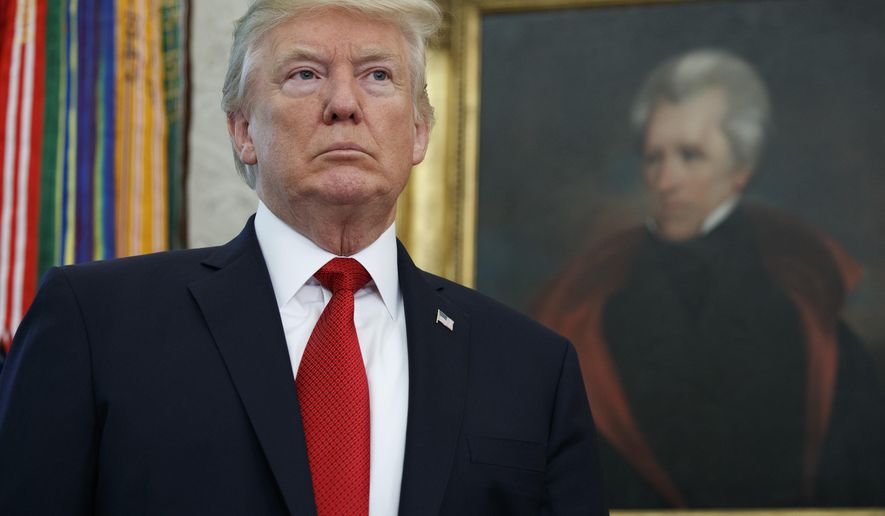The Supreme Court issued an order Tuesday dismissing Hawaii’s challenge to President Trump’s refugee policy, as encapsulated in his earlier “extreme vetting” executive order, saying the case is moot because the 120-day refugee pause has now expired.
The justices acted on the same day that the 120-day period expired.
“Because those provisions of the Order have ’expired by [their] own terms,’ the appeal no longer presents a ’live case or controversy,’” the justices said.
The order comes as the Trump administration is expected to announce an updated policy on refugee vetting and admissions later Tuesday. President Trump has already slashed the overall refugee target from 110,000 people in 2017 to 45,000 in 2018.
But as the administration works improve its vetting procedures for visitors and would be immigrants to the U.S., it continues to be embroiled in court battles over the legality of its plan to curtail admissions to the U.S. from countries where there are concerns about terrorism and vetting procedures to confirm the identities of travelers.
The Trump administration introduced a third version of the travel ban in September that sought to curtail the admission of visitors and would-be immigrants from eight countries — Chad, Iran, Libya, North Korea, Somalia, Syria, Venezuela and Yemen. However two federal judges, in Maryland and Hawaii, have now ruled that the restrictions on admissions from six of the countries were likely illegal and blocked the restrictions from taking effect. They allowed the restorations to take effect for North Korea and Venezuela.
The Trump administration on Tuesday filed a notice that in intends to appeal the Hawaii judge’s ruling to the 9th U.S. Circuit Court of Appeals.
Hawaii Attorney General Doug Chin, who filed the case, said “we stand ready to defend it.”
The administration last week filed formal notice it intends to appeal the Maryland case to the 4th U.S. Circuit Court of Appeals.
The judges blocked parts of the third travel ban from being enforced have also both previously ruled against the first and second versions of the travel ban.
This time around Judge Derrick K. Watson, an Obama appointee to the federal court in Hawaii, was critical of the third version because he said the president didn’t do enough to prove why the the U.S. needed additional restrictions on visitors from the six countries.
Judge Theodore D. Chuang, who was also appointed to the federal court in Maryland by President Obama, said the third attempt was still poisoned by Mr. Trump’s comments on the campaign trail, which he said showed a “religious animus” toward Muslims.
• Stephen Dinan can be reached at sdinan@washingtontimes.com.
• Andrea Noble can be reached at anoble@washingtontimes.com.




Please read our comment policy before commenting.